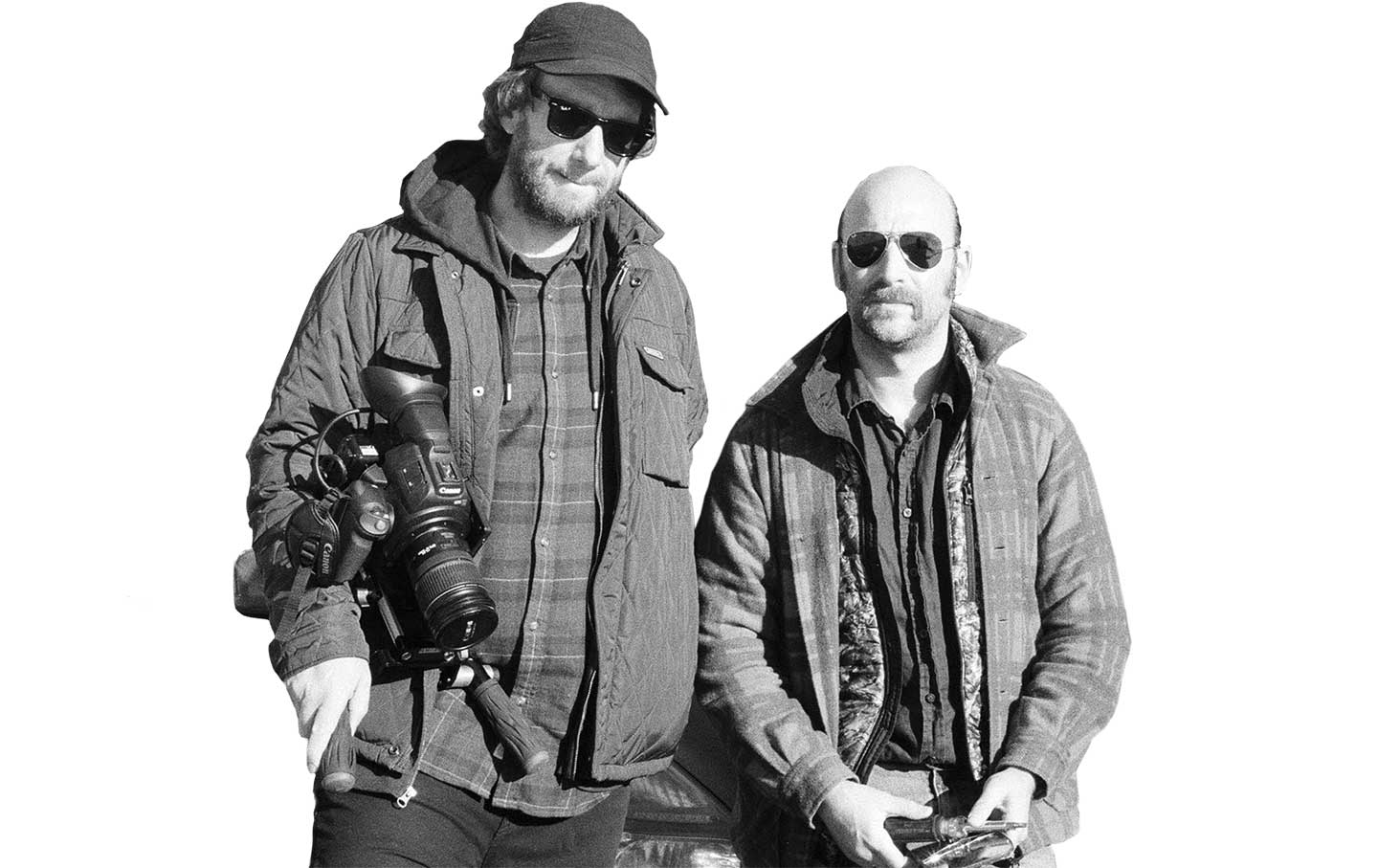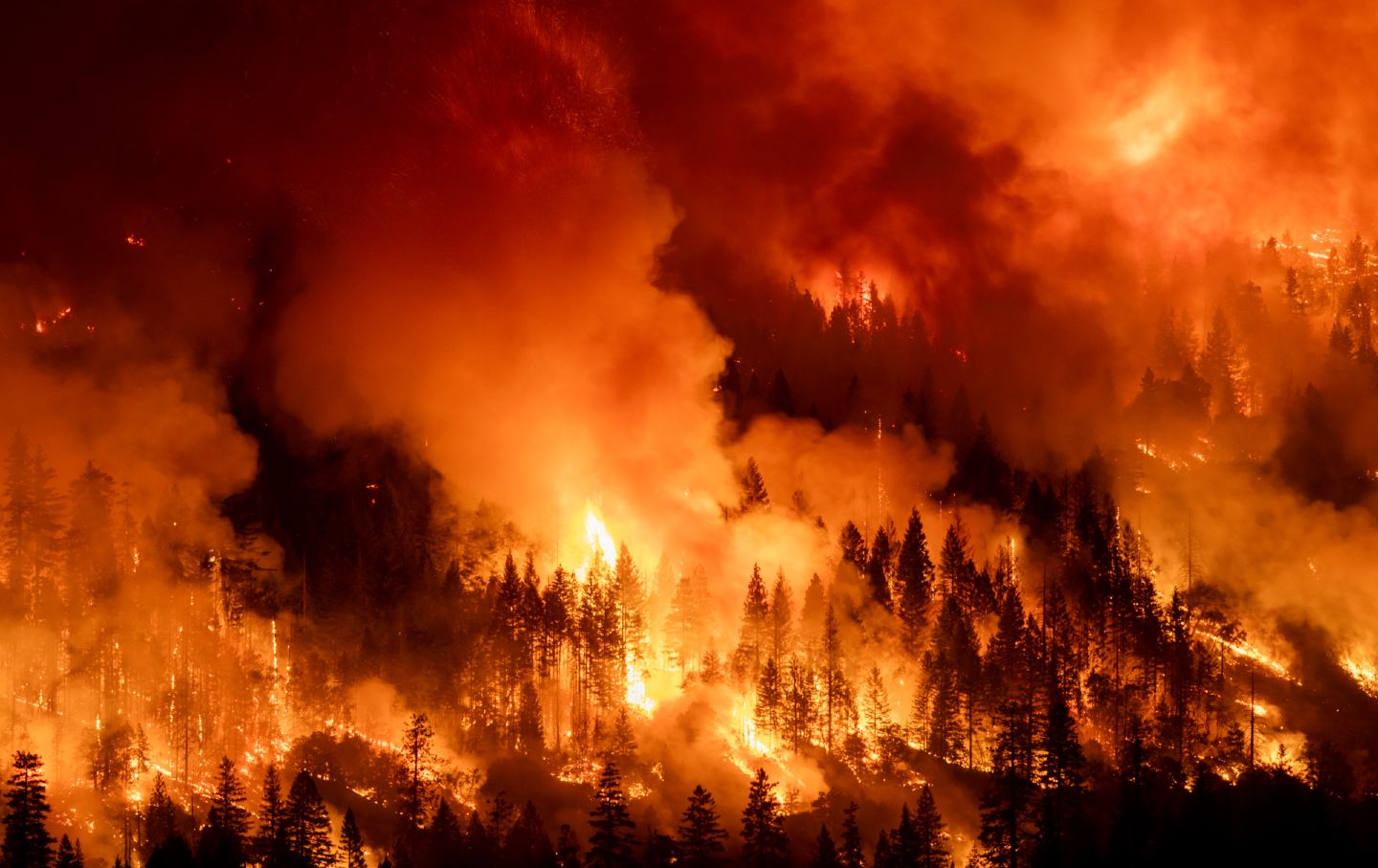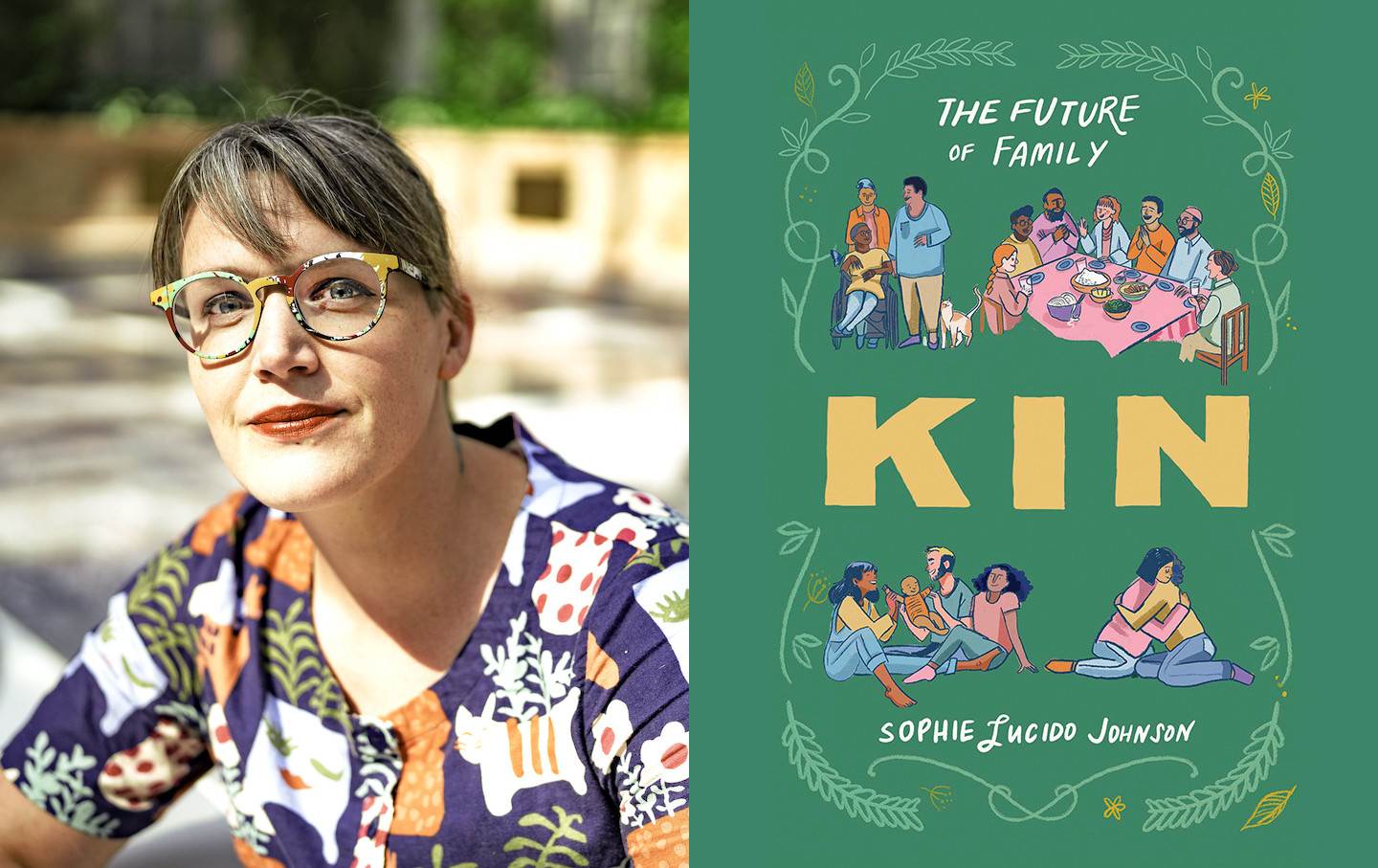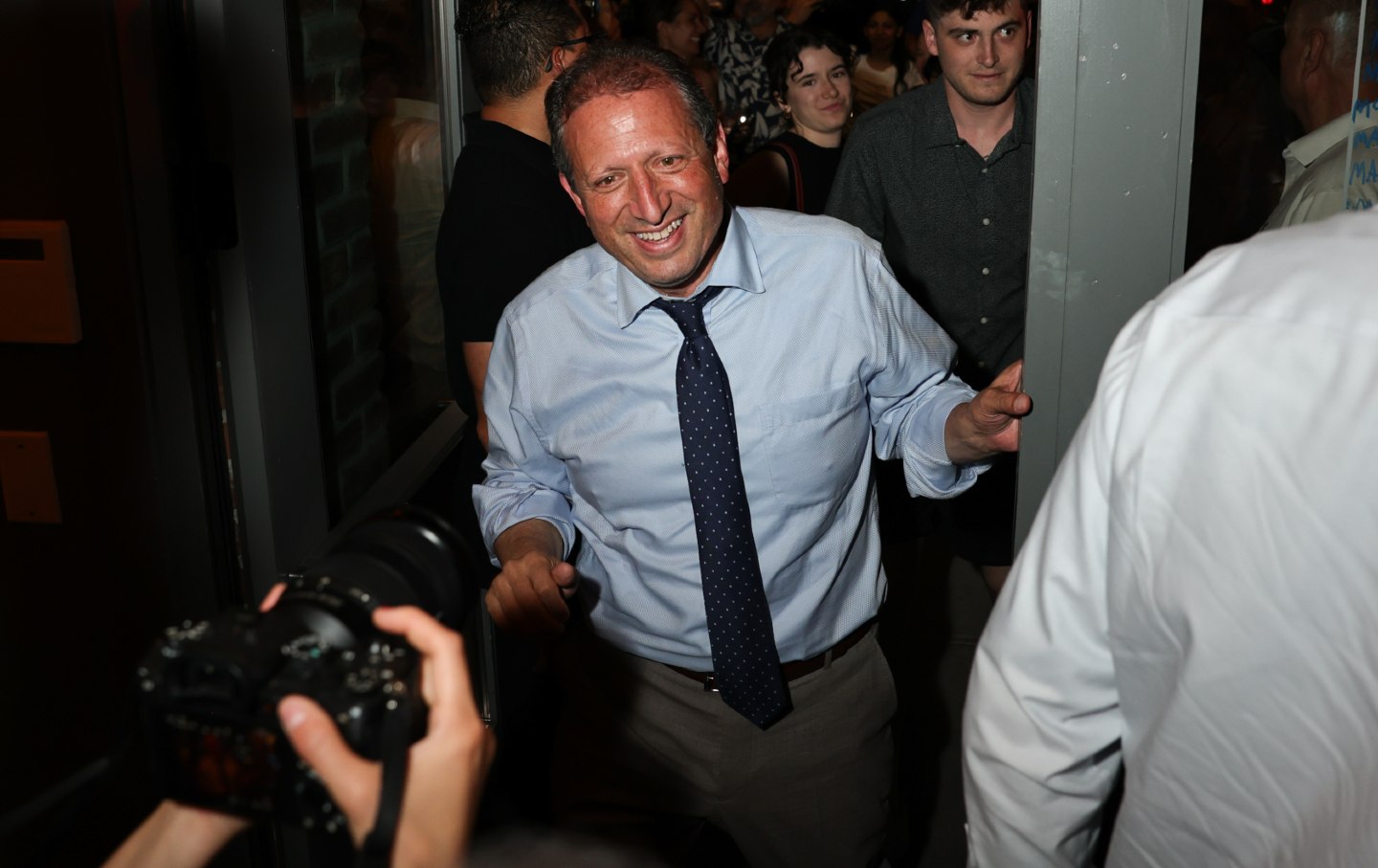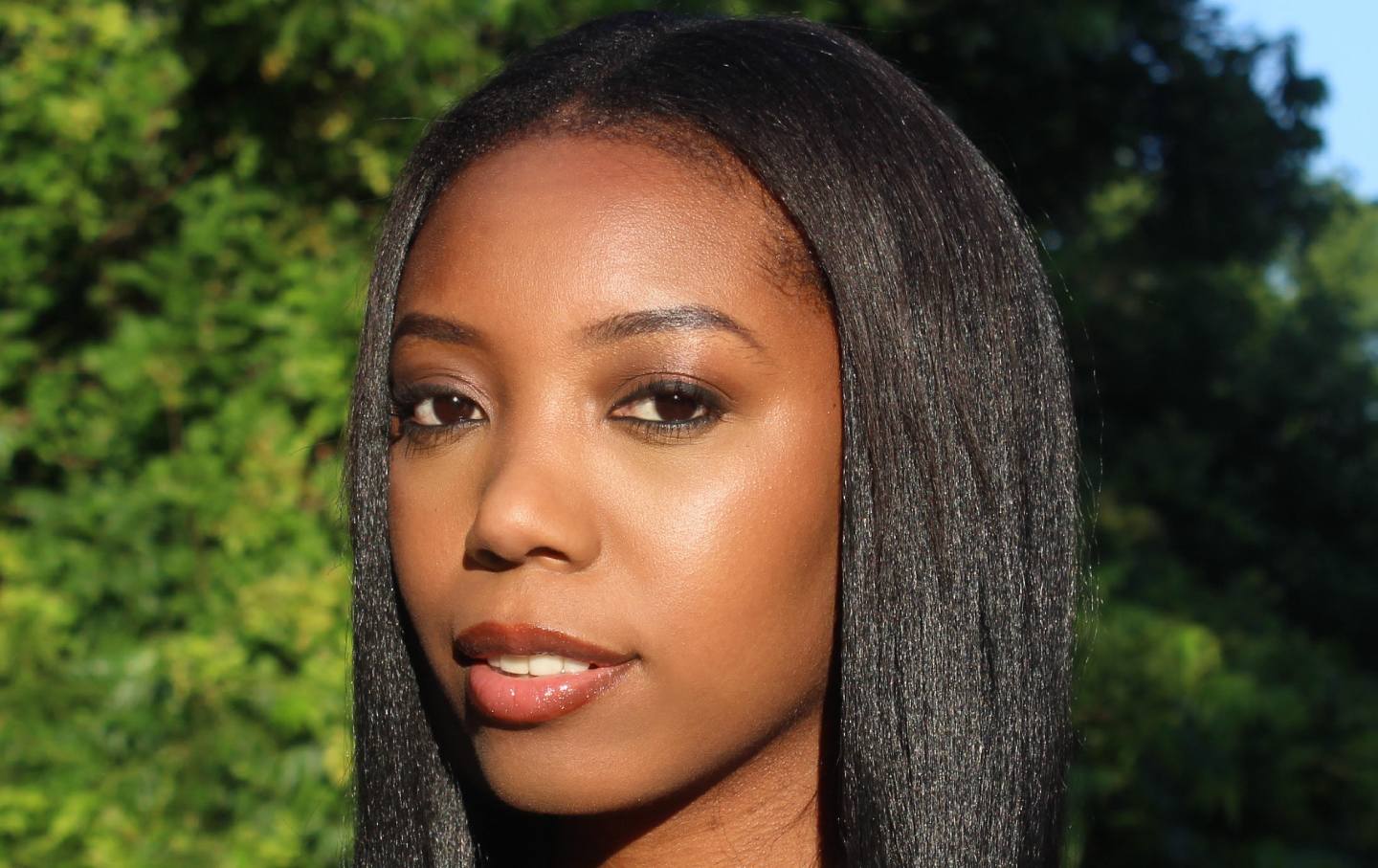
Malaika Jabali
(Provided)
Wisconsin is a crucial swing state again in this election year, and both parties are vying to claim the attention of voters. The award-winning journalist, author, and attorney Malaika Jabali recently relocated to the state, and her work has led her to dig into the data where she’s found that Wisconsin is one of the most racially unequal states in the country. Housing costs are up; wages are not. It has the highest Black male incarceration rate, according to The Sentencing Project. And perhaps unsurprisingly, Wisconsin has seen a record drop in Black voter turnout. Is any party or politician running today offering a fix? Malaika Jabali is the former senior news and politics editor at Essence magazine. She has written for Teen Vogue, The Guardian, and others. Her first book, It’s Not You, It’s Capitalism: Why It’s Time to Break Up and How to Move On is out this year, and she is hard at work on a new book about Black Midwesterners.
—Laura Flanders
Laura Flanders: You wrote a piece about economic anxiety, particularly Black economic anxiety and voting patterns in Milwaukee some years ago. What was it that drew you to that place then, and what keeps you there?
Malaika Jabali: For one, it was looking at the low voter turnout from 2012 to 2016. I wanted to figure out what was going on behind the numbers. I felt that there was a very extensive narrative that I think we’re still hearing now. It’s almost a cottage industry of trying to figure out what happened with the white working class. What happened where you had voters who were switching from Obama to Trump? Why have so many white working-class people over the last few decades gone to the Republican Party? On the other side of that, you have a lot of Black nonvoters. A lot of Black people are saying, “We don’t have any options between the Republican and Democratic parties. Those are our only two viable options.” But voting for Donald Trump for many Black people is not an option. So they tend to stay home. It was me trying to understand what was going on behind the numbers that most journalists, I barely saw any journalism about it. This was back in 2017. All the pieces on what was going on with the election were missing a very crucial story.
LF: The short film you made back in 2020 called Left Out talks to Black Milwaukeeans about the history of their state and where their city has come today. It seems to me that we have been greeting every election with what happened to the white working class, going back decades now. Is anything changing?
MJ: If you look at some recent data, this is the least support and the least faith that Black people have had in the Democratic Party. The analysis tends to look at what are some of the more symbolic gestures that we can reward Black people with? We’ve got a Black vice president. We’ve got Black people in the cabinet. We’ve got Black people in this administration. But when you talk to people on the ground, a lot of that excitement and that allure really dulled after Barack Obama. People aren’t just looking for firsts anymore; they’re looking for substantive policy.
LF: When you talk about the gestural versus the substantive or the systemic, what do you mean?
MJ: There’s symbolic gestures of appointments and getting a few Black faces in high places. When it comes to symbolic gestures, for instance, Hillary Clinton was known for saying that she carried hot sauce in her bag and that actually insulted Black voters. Maybe she did not mean it that way, but a lot of Black voters took it that way. And so, you’ve got this racial appeal on one hand, these cultural appeals, but then the lack of not only substantive policy but a lack of substantive engagement with the community. Bernie Sanders actually won Wisconsin. Hillary Clinton ended up losing in their primary. Bernie Sanders got most of his Black support, he didn’t get a whole lot throughout the country, but his highest Black support, at 31 percent, was in the state of Wisconsin.
LF: How do you think Donald Trump is doing on this run? He’s been trying to bond with African Americans, weirdly through fighting the carceral state, casting himself as some big victim of the criminal justice system. How do you think that appeal is going down?
MJ: I don’t believe that he’s going to win Black people in Wisconsin. I do think that there is room for maybe a larger number than expected to shift to him. But when you look at Black people as a whole, they’re not en masse switching to the Republican Party. Even if you look at 2020, he had plenty of cases against him and all kinds of criminality, and the way that he’s even using that framing to try and appeal to Black people is just wildly racist. But he was facing that problem in 2020, and it’s not like he won a large number of Black people. In fact, the voter turnout that year, even though 2016 was a historic Black decline in Black voter turnout, 2020 was even lower. So, it’s not like he’s winning over these people who would otherwise not be involved in the two-party system.
LF: The Democrats would say, “Well, but look at what we’ve done.” We’ve seen the Inflation Reduction Act. We’ve seen the American Recovery Plan. We’ve seen a lot of money go into infrastructure and social supports. Is it visible in a place like Milwaukee?
MJ: For the average person, I don’t think they are aware of some of those policies. Some of the key issues that are affecting Black people, when you look at unemployment, when you look at housing costs and affordability, it’s not going to hit that yet. As we know, infrastructure developments take a long time. So I don’t think people are seeing that on the ground, but so much of this is because of generations of abandonment. The work that he might’ve been doing the last three years, I don’t think is enough to quell the disillusionment that people have been having with the party, really since the 1970s and ’80s.
LF: That brings us to the systemic question that you pose in your last book about breaking up with capitalism. Maybe the problem is bigger than any individual candidate or party.
MJ: I think it is bigger than both parties. Housing for Black America is worse than it was in 1968 before the Fair Housing Act passed. Home ownership rates have barely budged. When you look at the affordability of college, it’s gotten way more expensive, and Black men and women are more likely to carry student loan debt. Many things that should have been a part of our social safety net have been marred by this kind of individualism and anti-Blackness where everybody’s not able to thrive from it. Instead of community programs, you’re looking at individual small business ownership. We’ve been trying that kind of inclusion for the last 60 years. DEI didn’t get started when it became a boogie word for conservatives in the 2024 election. It’s been affirmative action. It’s been these kinds of inclusion programs over the last 60 years. If it were going to work, I think it would’ve worked by now. The purpose of the book is to say, “Why don’t we give another relationship a shot?” This isn’t even a new relationship. This is something that we had as an antidote to the Great Depression. This is something that we’ve had right here in real America, in Wisconsin. Let’s return back to the things that actually worked for people.
LF: You are working on a new book on Black Midwesterners. What are the questions you’re asking? How are you thinking about this November and what’s at stake?
MJ: I’m just asking people what makes them lose interest in voting. We have to get at the heart of what it means to actually be a democracy. And when, for instance, you have a state like Wisconsin, where 47 percent of Black people have come out to vote, a majority of Black people did not show up in 2016, why? Instead of forcing people into these false choices, we need to ask them what makes them thrive? What would make their lives better? What kinds of choices can we have electorally to give them that life, instead of forcing them under this duopoly? My focus is on talking to people and asking what they want. What do they need? What are they missing? Do we even have a democracy? Have we had a democracy when it took so long for Black people to have the right to vote? And then, once they get it, they realize not a whole lot is changing materially. I’ve been seeing the writing on the wall for the past seven, eight years, and if you look further than that, it should have been clear. The signals have been there when you look at the simmering frustration. So it’s giving people the historical context for their problems. This isn’t just something that they’re dealing with. This is a function of a democracy that has really become controlled by two capitalist parties. So what do we do with that? Are there other outlets for us?


